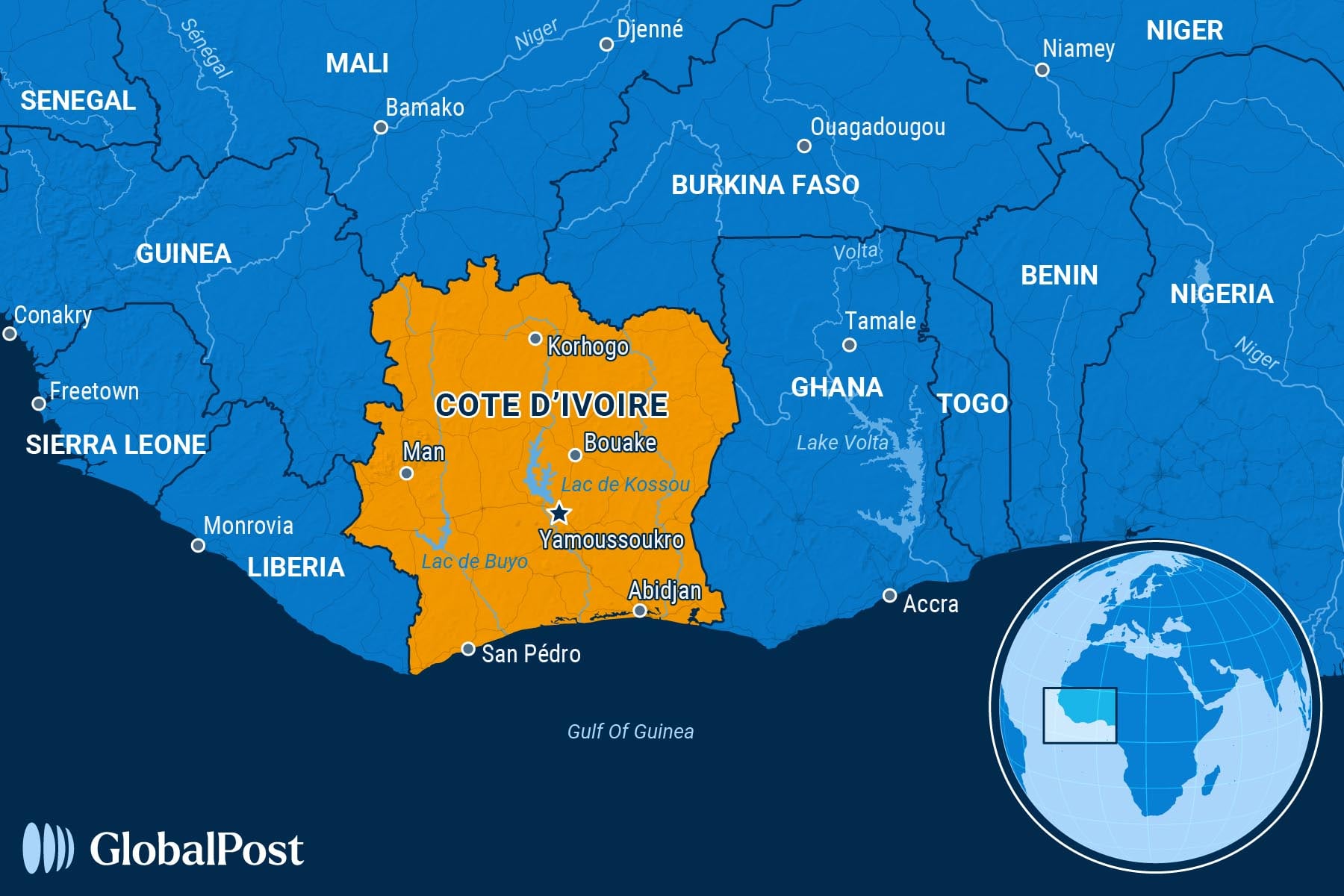Chocolate and Choice: With the Country on Edge, Ivorians Coast Goes To the Polls

Voters in the Ivory Coast, Francophone West Africa’s largest economy, are complaining that the government has frozen out legitimate alternatives in their upcoming presidential election.
Under President Alassane Ouattara, election officials banned four major politicians from running for the office when voters go to the polls on Oct. 25, including former President Laurent Gbagbo and Tidjane Thiam, a former CEO of Credit Suisse, one of the biggest banks in the world.
In response, opposition parties united in a partnership labeled the Common Front, which called for protests in Abidjan, the country’s largest city, earlier this month. “Demonstrations for democracy, justice, and peace will continue every day across the country until the demands for political dialogue are met,” said the Common Front, according to Radio France Internationale.
Abidjan officials, who banned the protests in the name of keeping order before the vote, cracked down on the demonstrations with tear gas and roadblocks, the Associated Press reported. Around 240 people were arrested. Security forces also apprehended journalists and seized their equipment, added Le Monde.
The protesters told Al Jazeera they wanted only to make their voices heard peacefully at a time when their country’s chocolate industry should be financing new schools and other infrastructure but instead hasn’t improved their lives.
Perhaps in a bid to appease popular sentiment, the president increased the price of cocoa exports, noted Business Inside Africa. The cost went from $3.40 per kilogram to $4.50 – a major boon to farmers who constitute an important constituency in the country. “Those who work hard in our fields benefit from the fruits of their labor,” said Ouattara.
But those sweet words were little consolation to protesters whose anger also reflected tensions over a trend in Africa where old leaders refuse to leave office and make way for a new generation, as this National Public Radio story described.
“It is an irony for a continent whose median age is just 19,” Africa analyst Paul Nantulya told NPR, adding that “third-termism,” as he dubs some African leaders’ attempts to cling to power, “is a disease.”
Ouattara, 83, has been in power since 2010. He’s now running for a fourth term after he supported a controversial constitutional change in 2016 that ended presidential term limits.
Meanwhile, it’s not just protesters opposing him. Military juntas that rule Ivory Coast’s neighbors, Burkina Faso, Mali, and Niger, might be supporting online disinformation campaigns against his candidacy, wrote Agence France-Presse. These campaigns might also reflect Russian meddling in the Ivory Coast, which maintains good relations with France, the region’s former colonial power, whom the military juntas have shunned in favor of Moscow.
Now, former First Lady Simone Gbagbo, wife of Laurent, might stand the best chance of beating the incumbent, the BBC reported.
Still, analysts say the likelihood of instability erupting after the election is high.
“Côte d’Ivoire has long grappled with a presidential paradox: the country is economically strong but politically vulnerable, particularly when it comes to choosing a president,” wrote the International Crisis Group.
It detailed how, since President Ouattara rose to power following the disputed 2010 election, the Ivorian economy has been expanding steadily, and the government has made infrastructure improvements and implemented military reform.
“Despite this and other achievements, the country’s political system remains prone to turmoil due largely to an extreme concentration of power in the presidency, the inability of the political class to make compromises and a largely unfinished process of national reconciliation after the 2010 election and the ensuing four-month war,” it added. “These problems resurface every time a presidential election rolls around and could threaten the country’s stability once again.”

Subscribe today and GlobalPost will be in your inbox the next weekday morning
Join us today and pay only $46 for an annual subscription, or less than $4 a month for our unique insights into crucial developments on the world stage. It’s by far the best investment you can make to expand your knowledge of the world.
And you get a free two-week trial with no obligation to continue.
